Israel PM delays freeing Palestinian prisoners over ‘humiliating’ hostage release ceremonies
Prime Minister Benjamin Netanyahu said the ceasefire deal freeing Palestinian prisoners will be delayed until Hamas ends ceremonies it holds while handing over Israeli hostages.
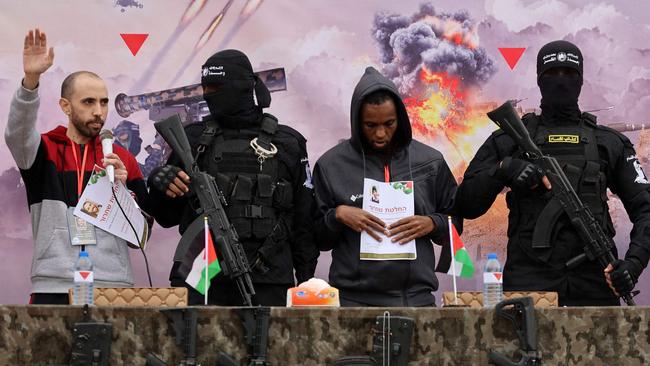
Israeli Prime Minister Benjamin Netanyahu said early Sunday that freeing Palestinian prisoners under the Gaza ceasefire deal will be delayed until Hamas ends “humiliating ceremonies” it holds while handing over Israeli hostages.
“In light of Hamas’ repeated violations -- including the disgraceful ceremonies that dishonour our hostages and the cynical use of hostages for propaganda -- it has been decided to delay the release of terrorists that was planned for yesterday (Saturday) until the release of the next hostages is ensured, without the humiliating ceremonies”, Netanyahu’s office said in a statement.
Since a ceasefire came into effect in Gaza on January 19, Hamas has released 25 Israeli hostages in well-rehearsed ceremonies, with masked militants parading the captives on stage and forcing them to wave at Gazans gathered to watch the events, and even address them on a microphone.
In the choreographed ceremonies, the hostages are given certificates in Hebrew to mark the end of their captivity before being handed over to Red Cross officials, who then transfer them to Israeli forces.
On Thursday, militants even handed over the remains of three hostages in coffins at a ceremony, which drew widespread criticism from the United Nations.
“The parading of bodies in the manner seen this morning is abhorrent and cruel, and flies in the face of international law,” said UN human rights chief Volker Turk.
Hamas has dismissed repeated calls by the Red Cross to release the hostages in private.
On Saturday, Hamas released six Israeli hostages as part of the scheduled seventh such hostage-prisoner swap under the fragile first phase of the ceasefire deal.
In return, Israel was to release more than 600 Palestinian prisoners. But soon after the hostages were released, Israeli sources said that Netanyahu was expected to decide on the Palestinian prisoners’ releases.
Early on Sunday, Netanyahu announced his decision to suspend the release of Palestinian prisoners until the ceremonies for handing over hostages are halted.
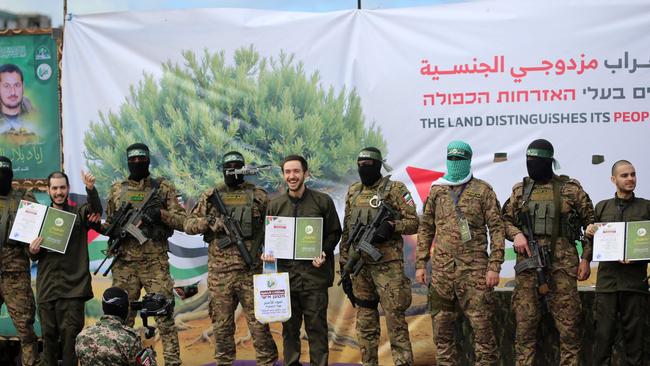
In the Israeli-occupied West Bank and in the Gaza Strip, families were waiting for hours for their loved ones to be released from Israeli custody in exchange for the six Israelis taken back home.
“Waiting is very difficult,” said Shireen al-Hamamreh, whose brother was due for release.
“We are patient and we will remain stronger than the occupier, God willing,” she told AFP in the West Bank city of Ramallah.
Um Diya al-Agha, whose son has spent 33 years in prison, said she had come to each of the six previous prisoner releases in the hope of finding him.
“Yesterday, I received news that he would be released, but I still can’t believe that my son will be free after 33 years”, she told AFP in the European Hospital in Khan Yunis, where freed prisoners had been expected to have a medical checkup.
“If my heart were made of iron, it would have melted and shattered. Every day, I have been waiting for this moment”, the 80-year-old Khan Yunis resident said.
Um Hassan al-Qatta travelled from Gaza City hoping that newly released prisoners might have word on her teenage son, who went missing 314 days ago during the war.
“I don’t know if he is alive or dead,” she said. “I am happy for the hundreds of prisoners who have been freed, and I hope my son Hassan... will be released too.”
The Palestinian Prisoners’ Club advocacy group said Israel would free 620 inmates on Saturday, most of them Gazans taken into custody during the war, but their release has stalled into the night.
In Ramallah, prisoners’ families holed up inside a cultural centre to escape the cold during their long wait. Many had made time-consuming journeys across the West Bank through multiple Israeli checkpoints.
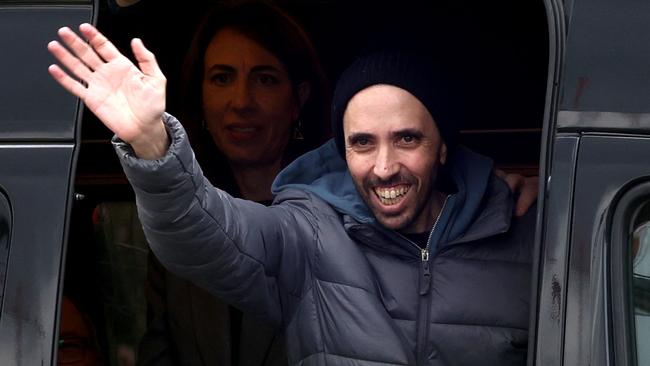
Hamas spokesman Abdel Latif al-Qanou said in a statement that Israel’s “failure to comply with the release... at the agreed-upon time constitutes a blatant violation of the agreement” that has largely halted more than 15 months of devastating fighting in the Gaza Strip.
Qanou called on the truce mediators to pressure Israel to “implement its provisions without delay or obstruction”.
The Israeli sources did not provide a clear reason for the delay, which comes after an emotional two days in Israel, where the remains of hostage Shiri Bibas have been identified after the initial handover of a different body.
Other Israeli sources said the prisoners’ release had been delayed pending a decision by the prime minister.
Netanyahu “will hold a security consultation this evening”, an Israeli official said on condition of anonymity.
Another source said that “once the security consultation concludes, a decision will be made regarding the next steps”.
Netanyahu has said Hamas will pay “the full price” for what he termed a violation of the truce deal over Bibas’s return.
Bibas and her two young sons, among dozens taken captive during Hamas’s October 7, 2023 attack on Israel that triggered the war, had become symbols of the ordeal suffered by the Israeli hostages.
Six Israelis, some of them dual nationals, were released earlier on Saturday, the last group of living hostages under the truce’s first phase.
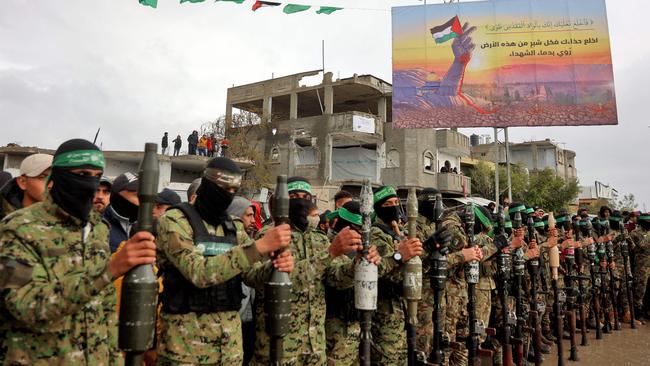
The first phase of the truce has so far enabled the release of 30 captives and is due to expire in early March.
Negotiations for a second phase, which is meant to lead to a permanent end to the war, have yet to begin.
From Washington, US Secretary of State Marco Rubio warned that Hamas would be “destroyed” if it did not release all the remaining hostages.
“Hamas’ treatment of hostages, including its brutal murder of the Bibas family, further illustrates their savagery and is yet another reason why we are saying these terrorists must release all of the hostages immediately or be destroyed,” he wrote on X.
At a ceremony in Nuseirat, central Gaza, Eliya Cohen, 27, Omer Shem Tov, 22, and Israeli-Argentine Omer Wenkert, 23, waved while holding release certificates, flanked on a stage by masked Hamas militants before their handover to the Red Cross and return to Israeli soil.
“I saw the look on his face, he’s calm, he knows he’s coming back home... He’s a real hero,” said Wenkert’s friend Rory Grosz.
Under the cold winter rain in Rafah, southern Gaza, militants handed over Tal Shoham, 40, and Avera Mengistu, 38, who both appeared dazed.
A sixth hostage, Hisham al-Sayed, 37, was later released in private and taken back to Israeli territory, the military said.
Sayed, a Bedouin Muslim, and Mengistu, an Ethiopian Jew, had been held in Gaza for about a decade after they entered the territory individually.
Sayed’s family called it “a long-awaited moment”.
Relatives of Shoham wept and embraced as they watched his handover, video released by the Israeli government showed.
“Tal seems well considering the circumstances. An enormous weight is lifted from us,” the family of the Austrian-Israeli dual national said.
On Thursday, the first transfer of dead hostages under the truce sparked anger in Israel after analysis concluded that Shiri Bibas’s remains were not among the four bodies returned.
Hamas then admitted a possible “mix-up of bodies”, and late Friday handed over more human remains which the Bibas family said had been identified as Shiri’s.
The family said in a statement she “was murdered in captivity and has now returned home... to rest.” Israel’s military said that, after an analysis of the remains, Palestinian militants killed the Bibas boys, Ariel and Kfir, “with their bare hands” in November 2023.
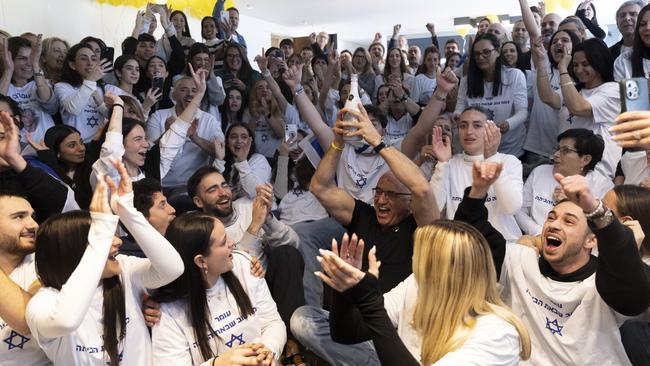
Hamas has long maintained that an Israeli air strike killed them and their mother early in the war, and on Saturday dismissed the military’s account as “baseless lies”.
Out of 251 people taken hostage during the October 2023 attack, 62 are still in Gaza including 35 the Israeli military says are dead.
The Hamas attack resulted in the deaths of 1,215 people, mostly civilians, according to an AFP tally of Israeli official figures.
Israel’s retaliatory campaign has killed at least 48,319 people in Gaza, the majority of them civilians, according to figures from the health ministry in the Hamas-run territory that the United Nations considers reliable.
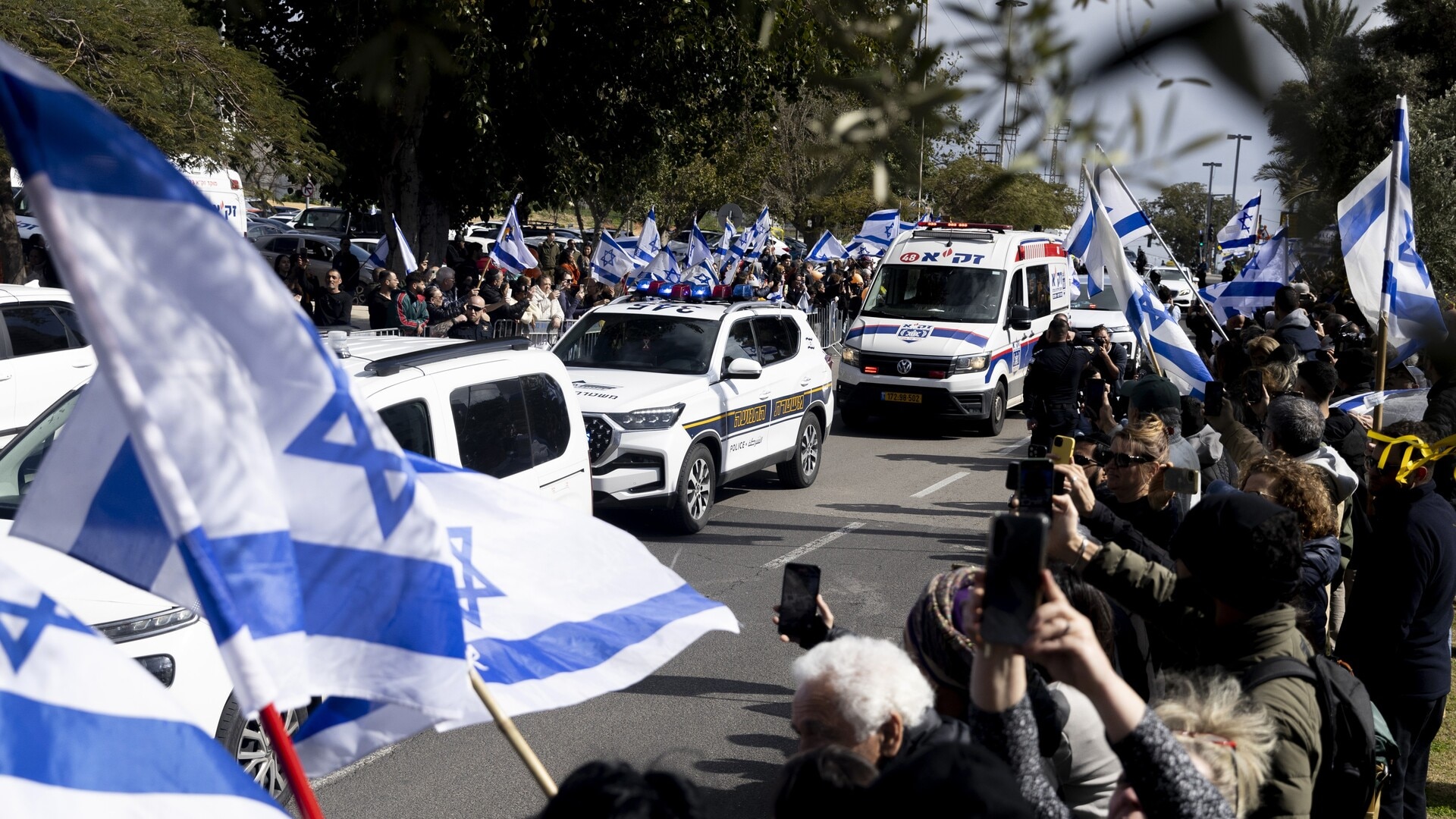
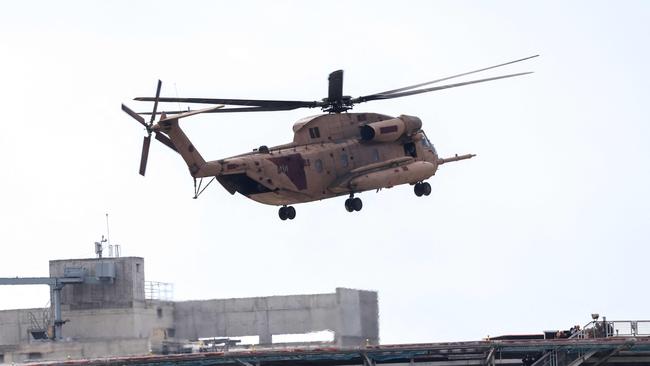
Well-rehearsed Hamas ceremony
At both locations the militants prepared for a now well-rehearsed ceremony, building stages in front of large posters advertising the militants’ cause or praising fallen fighters.
The Red Cross has repeatedly appealed for handovers to take place in a dignified manner.
Under a cold winter rain in Rafah, Hamas staged a show of force after months of bombardment and strikes that killed the group’s top leaders. Some fighters held automatic weapons, others rocket launchers, as nationalistic Palestinian music blared.
Hamas’s green flag flew around the square on buildings destroyed by the war.
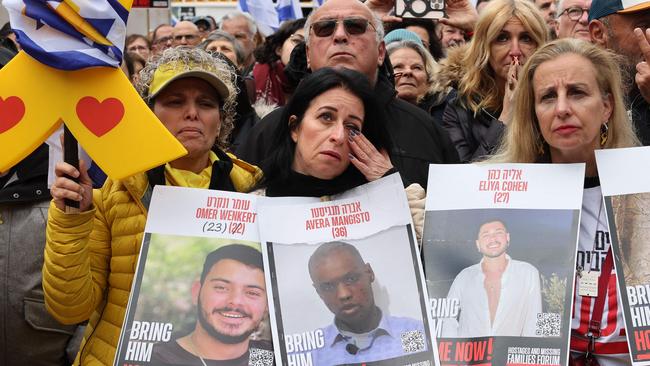
A spokeswoman for the NGO told AFP that most were Gazans arrested after the war began. She added that some of the prisoners would be deported outside of Israel and the Palestinian territories after their release.
Those expected to be expelled were serving heavy sentences.
The ceasefire has so far seen 21 living Israeli hostages freed from Gaza in exchange for more than 1100 Palestinian prisoners released from Israeli jails.
Hamas and its allies took 251 people hostage during the October 7 attack that sparked the war. There are 65 hostages still in Gaza, including 35 the Israeli military says are dead.
The Hamas attack resulted in the deaths of 1215 people, mostly civilians, according to an AFP tally of Israeli official figures.
Israel’s retaliatory campaign has killed at least 48,319 people in Gaza, the majority of them civilians, according to figures from the health ministry in the Hamas-run territory that the United Nations considers reliable.
Years of captivity end for Mengistu
Mengistu, a 38-year-old Israeli of Ethiopian descent, has spent more than 3800 days in captivity since crossing over to Gaza over a decade ago.
Shoham, a 39-year-old Israeli with Austrian and Italian citizenship, was abducted from Kibbutz Be’eri on October 7 along with eight other members of his extended family.
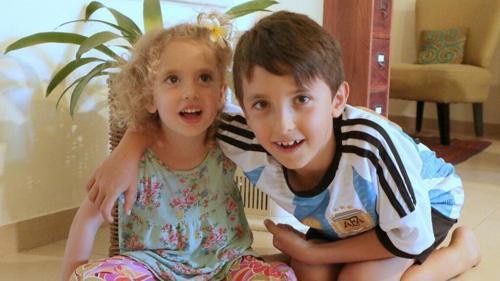
This included Shoshan Haran, 67; Avshalom Haran, 66; Lilach Lea Kipnis, 60; Adi Shoham, 38; Naveh Shoham, 8; Yahel Gani Shoham, 3; Sharon Avigdori, 52; and Noam Avigdori, 12.
Shoham was visiting Be’eri for the holiday of Simchat Torah, with his wife and children on October 7, because his wife had grown up there.
Shoham’s wife and children were also taken captive by Hamas and held together but separately from Tal.
His wife, Adi, and children, Naveh and Yahel, now aged 9 and 4, were released in the first hostage deal on November 25, 2023, after 50 days.
Agencies

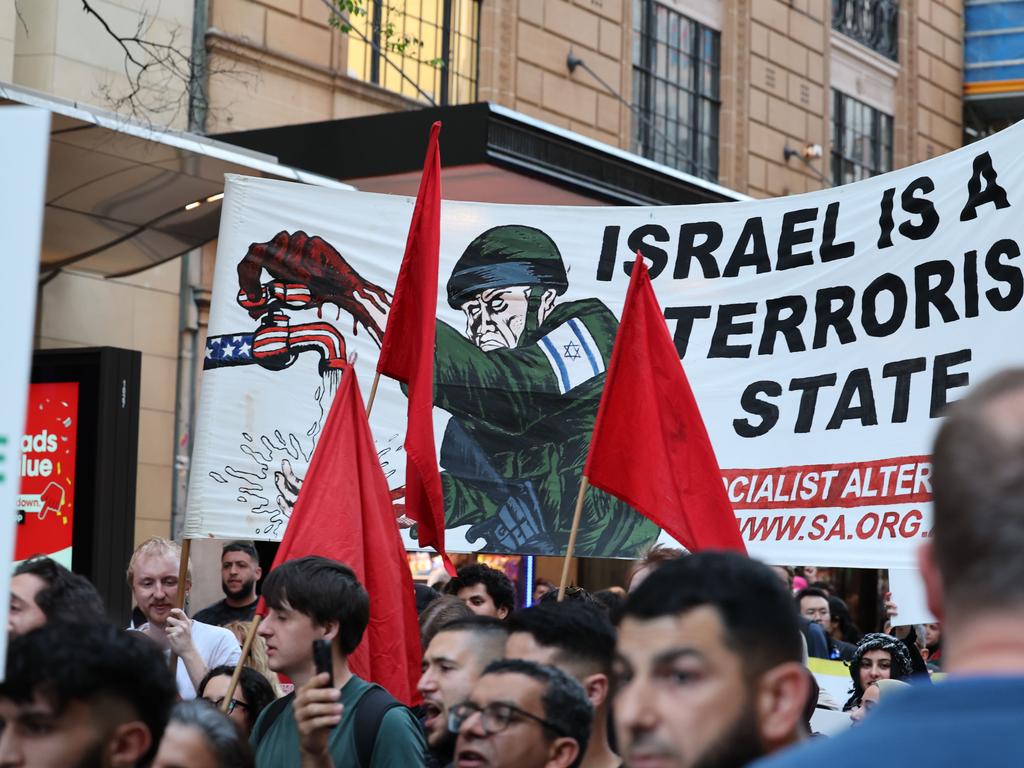
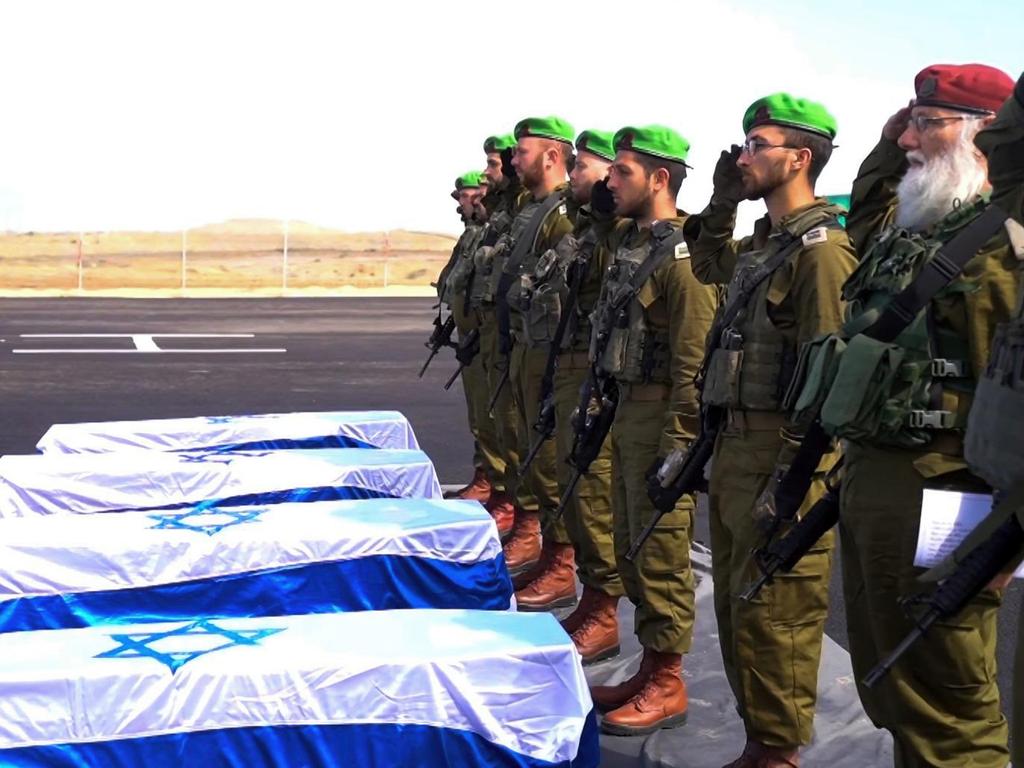
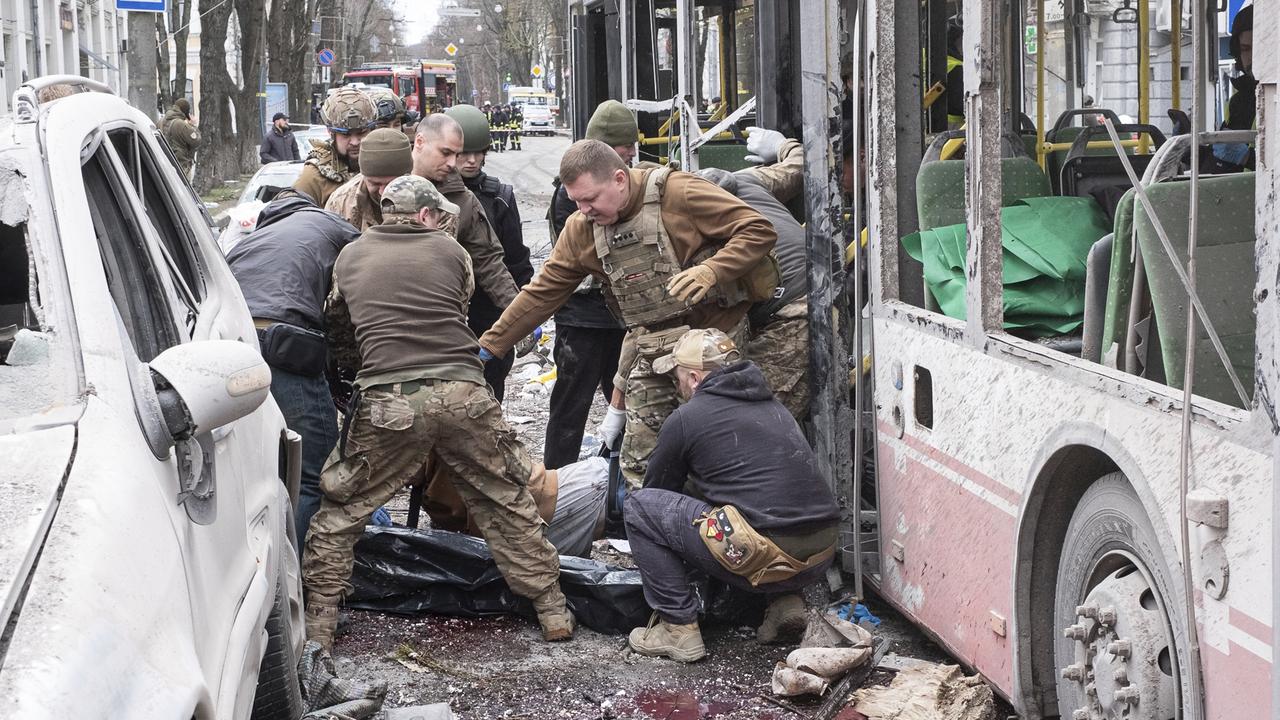
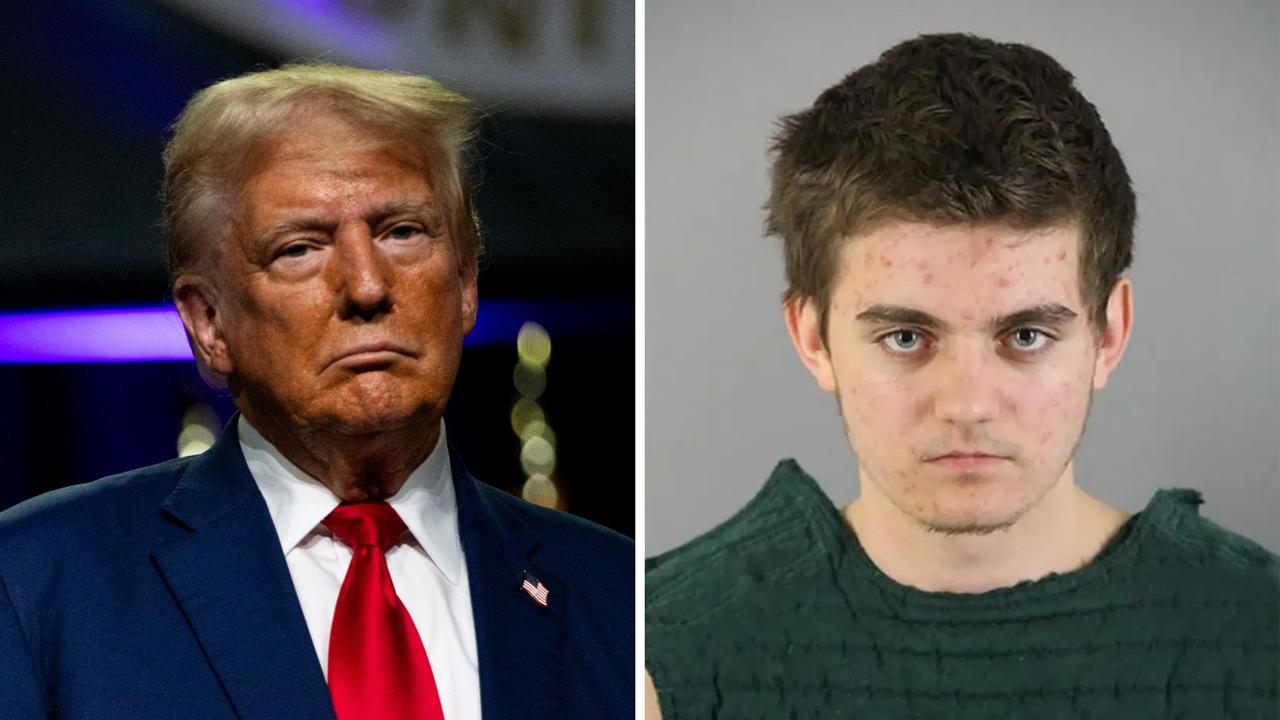
To join the conversation, please log in. Don't have an account? Register
Join the conversation, you are commenting as Logout